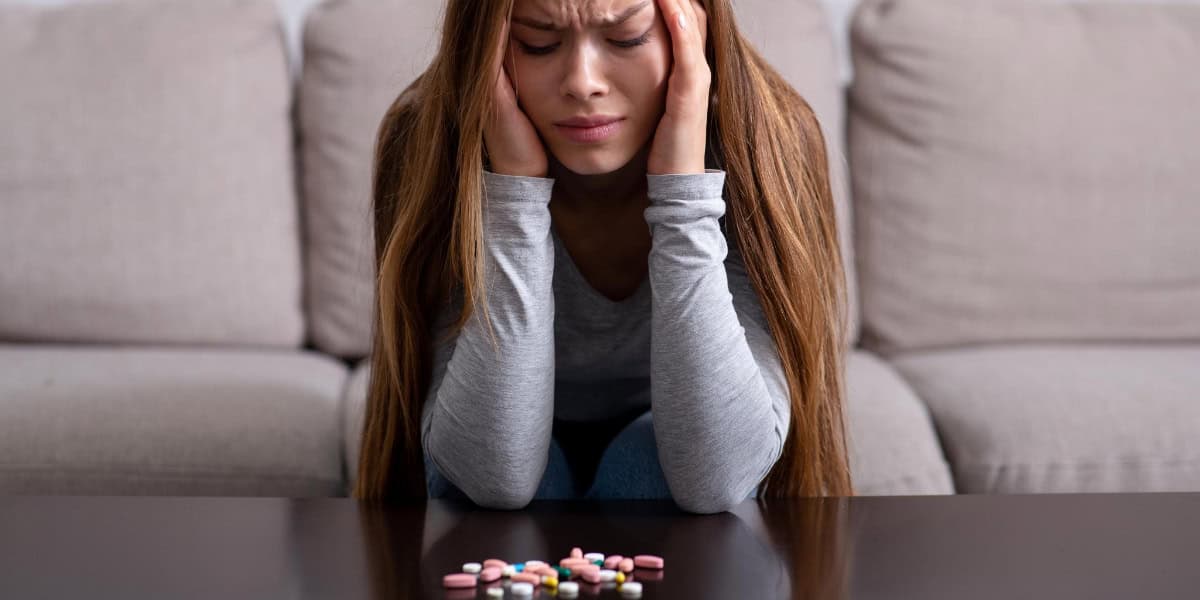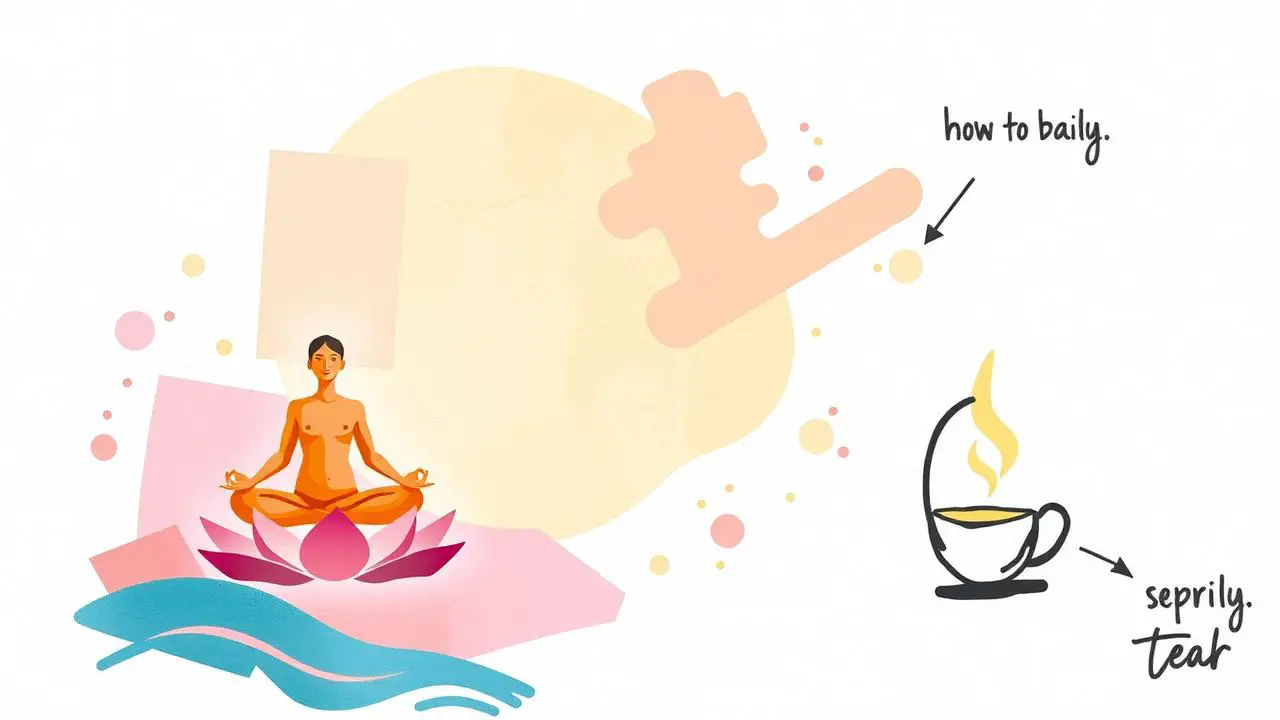Anxiety is a common problem that can be caused by many things, including a poor diet, lack of exercise, stress, and more. It can be difficult to overcome if left untreated, but how do you calm down without the use of drugs?
The key to managing anxiety is learning to identify what triggers your anxiety and then developing strategies to cope with those triggers.
For example, if you find that certain people make you anxious, it might be helpful to avoid interacting with them as much as possible or try to get along with them in small doses.
Fortunately, there are many natural ways to relieve anxiety. In this article, we will discuss the best ways to deal with anxiety and the most effective ways to naturally reduce anxiety.
What is Anxiety?
Anxiety is a natural emotion that occurs when we are experiencing a situation or feeling a particular way, and our mind tells us that it’s something bad, wrong, or dangerous.
The thing is, anxiety is actually a normal and healthy response to situations in life. It’s just that some people tend to experience more of it than others.
The reason why people may have more anxiety is because they often face situations in their life that create fear or uneasiness.
Some examples of these situations include:
• Being afraid of failing a test, getting into trouble, or not being able to do well on an exam.
• Worrying about making mistakes in front of other people, doing poorly at school,
or losing friends.
• Feeling like you don’t belong somewhere or having a hard time fitting in socially.
• Having to go through a painful medical procedure such as surgery or chemotherapy.
When faced with any of these types of situations, your body releases chemicals called neurotransmitters (which are similar to hormones) that cause feelings of anxiety and nervousness. These chemicals affect how you think and behave, causing you to become fearful, tense, and even angry.
When you’re stressed out, your body produces adrenaline, which causes your heart rate to increase and blood pressure to rise.
This makes you breathe faster and harder, and your muscles tighten up. All of these changes prepare your body for action so that you can either fight or flee.
The Power of the Brain
When we think about anxiety, we often think about the negative emotions that come with it. Anxiety is not always a bad thing. It is a very useful emotion that keeps us alert, focused, and ready to act. But when we feel too much anxiety, it can get in the way of our ability to function effectively and lead a normal life.
If anxiety is left untreated, it can cause serious problems. Some symptoms of anxiety include:
- Difficulty sleeping
- Trouble concentrating
- Nervousness or restlessness
- Irritability or mood swings
- Crying
- Panic attacks
- Muscle tension
- Tense muscles
- Sweating
- Rapid heartbeat
- Difficulty breathing
The good news is that there are ways to reduce your anxiety and live a happier life.
What are the Causes of Anxiety?
Anxiety is a natural human emotion that everyone experiences at some point in their lives. It is a normal part of being human.
However, when anxiety becomes excessive or causes you to feel like you can’t control it, you may be experiencing clinical anxiety.
Here are 10 potential causes of anxiety:
1. Stress
Stress is one of the biggest causes of anxiety. If you’re stressed out, chances are you’re anxious too.
When you’re stressed, your body releases stress hormones into your bloodstream. These hormones affect your nervous system and your emotions.
They can lead to feelings of anger, irritability, sadness, and depression.
2. Depression
If you feel depressed, chances are you’re feeling anxious too.
Depressed people tend to think negatively and feel hopeless. They may also feel guilty, angry, and frustrated.
These negative thoughts and feelings can trigger anxiety.
3. Trauma
Traumatic events can cause anxiety. For example, if you were abused as a child, you may still suffer from anxiety.
This is called Post-traumatic Anxiety Disorder.
4. Relationship Issues
If you have an argument with a loved one, you could experience anxiety. Or if you have a bad break up, you could feel sad and anxious.
5. Illness
Illnesses can cause anxiety. If your immune system is weak due to illness, you could develop anxiety.
For example, if you have the flu, you may feel tired and worried.
6. Diet
Your diet can influence your mental health. Certain foods can make you more anxious than others.
Certain foods such as caffeine, sugar, and alcohol can give you energy but they can also make you feel jittery and anxious. By cutting these out, you will maintain a level blood sugar level and avoid any crash after eating.
7. Medication
Some medications can cause anxiety. Antidepressants, antihistamines, and other drugs used to treat medical conditions can cause side effects.
8. Genetics
Genetics play a role in how you respond to certain situations. For example, if someone close to you has had anxiety disorders, this can increase your risk for developing them yourself.
9. Environment
Environmental factors can contribute to anxiety. For example, you might be anxious because you live in a noisy environment.
Or maybe you’re anxious when you travel somewhere new and unknown.
10. Life Events
Big life events can change your outlook on things. This includes moving house, getting married, having children, or losing a job.
The good news is that there are many effective strategies that you can use to help you reduce your anxiety and learn how to live with it.
How to Calm Your Anxious Mind Without Drugs
There is a growing trend of people using drugs to help with anxiety. Many people turn to drugs because they are tired of being anxious or feel like they can’t handle it any more. However, some people do not want to take drugs because they think they are bad for them.
Drugs are not the only solution to anxiety. In fact, there are many ways to relieve anxiety without taking drugs.
It is important to remember that you are not alone if you are struggling with anxiety. There are many people who have been through similar situations and have found solutions to their problems.
Here are five tips to help you relax and feel better.
1. Get Moving
Exercise has been shown to relieve symptoms of anxiety. Exercise releases endorphins, chemicals in the brain that give us feelings of happiness and well-being.
It also helps release serotonin, a neurotransmitter that calms the nervous system.
So make sure to schedule daily activities and exercise regularly to help manage anxiety.
2. Breathe Deeply
Deep breathing slows down the breath rate and makes it easier to breathe deeply, which in turn reduces anxiety.
When you start to feel the levels of anxiety rising, try taking three slow, deep breaths every minute.
3. Meditate
A lot of people have taken up meditation to improve the overall quality of life. Meditation involves focusing attention on one thing, usually an object or sound.
When you meditate, you focus on your breathing. This helps you concentrate on something else besides your worries.
Sit comfortably and take slow, deep breaths. Imagine yourself going deeper into your belly each time you inhale.
4. Eat Well
Eating a balanced diet can help you feel better. It’s important to eat enough protein, fiber, vitamins, minerals, and essential fatty acids.
A healthy diet should provide adequate amounts of these nutrients and will ensure you have the energy for any physical activity you do.
5. Take Time Off
Taking time off from work or school can help you relax. If you’re feeling stressed out, take some time away from your normal routine.
Take a break from your usual responsibilities and do something different.
If a it’s not possible to take a lot of time off, make the most of yor breaks by going outside and enjoying nature.
At the weekend, go hiking, camping, fishing, or swimming. Get involved in a hobby. Play sports, read books, or watch movies.
Whatever you choose, do something that takes your mind off your problems.
In addition to helping you relax, taking time off from work or studying can also help you stay focused.
Remember, relaxation doesn’t mean doing nothing. Relaxation means being calm and relaxed.
By following these steps, you can reduce your anxiety levels naturally.
Can the Techniques for Calming an Anxious Mind Be Used to Overcome Anxiety about Leaving the House?
Yes, the techniques for calming an anxious mind can definitely be used to overcome anxiety about leaving home with anxiety. Deep breathing, mindfulness, positive self-talk, and gradual exposure can all help manage the fear and discomfort associated with leaving the house. It’s important to seek professional help if needed.
Tips for Caring for Yourself When You’re Feeling Anxious
There is no denying that anxiety is a normal part of life. Everyone experiences anxiety at one point or another. However, if you feel that your anxiety is out of control, it could be damaging your life. It is important that you take steps to learn how to cope with your anxiety so that it doesn’t take over your life. If you are having a hard time managing your anxiety, there are many things you can do to manage it. You should try to implement these strategies into your everyday routine as often as possible.
Step 1 – Recognize the signs of anxiety: The first step in reducing anxiety is recognizing it when you feel it. When you begin to feel anxious, ask yourself what is causing your anxiety. If you don’t know, you can ask a friend or family member.
Step 2 – Breathe: Anxiety is a symptom of something else. It is caused by a thought or a feeling that has not been resolved. The best way to resolve this is to breathe. Take a deep breath in through your nose, hold it for a count of three, and then slowly release it. If you’re feeling anxious, you can repeat this exercise until you feel calm.
Step 3 – Change your thoughts: When you feel anxious, think about the positive things in your life. Think about the people who care for you. Think about how you can be helpful to others. If you are worried about money, think about how you can earn more money.
Step 4 – Do something fun: When you feel anxious, do something fun. It can be as simple as going for a walk, playing with your dog, or watching a movie.
In conclusion, anxiety is a natural part of being human. We all experience it to some degree. Anxiety is not a sign of weakness, but a natural reaction to life’s challenges. It can be helpful to talk about your feelings with someone you trust. You may also find that taking small steps toward managing your anxiety can help you feel more comfortable in your own skin.




